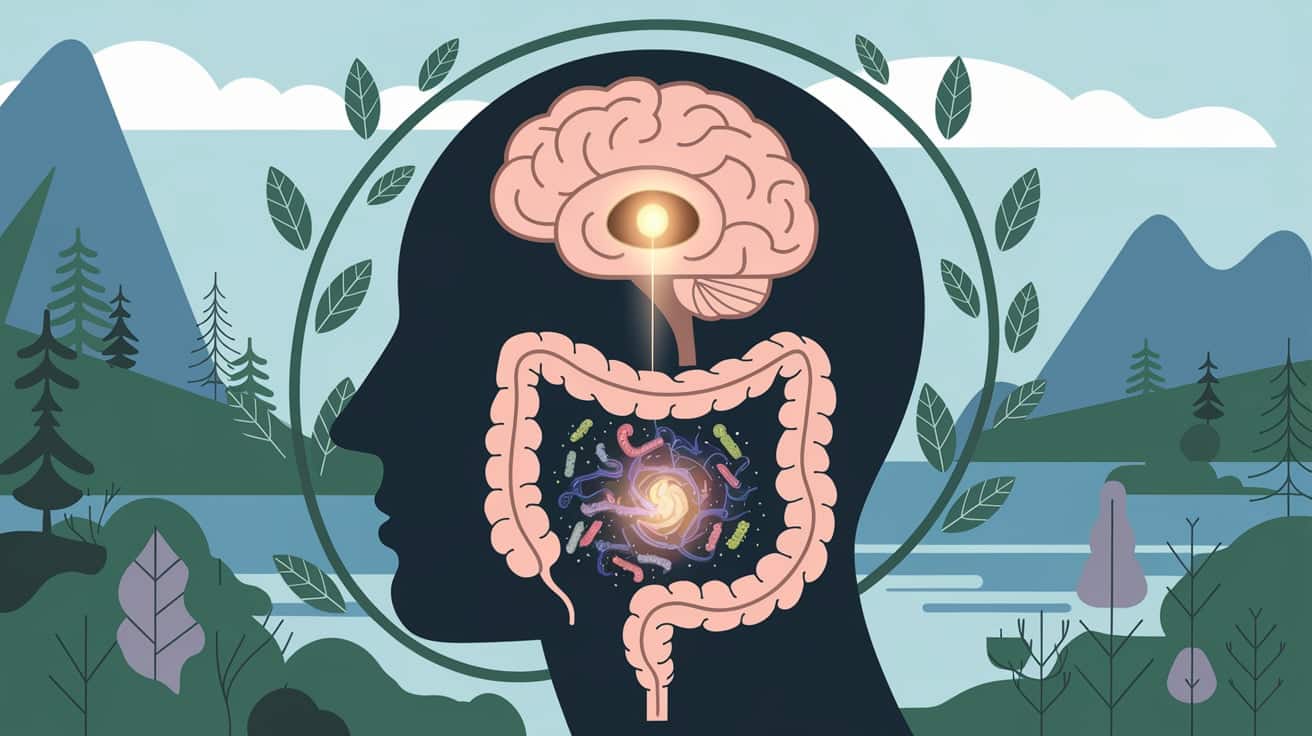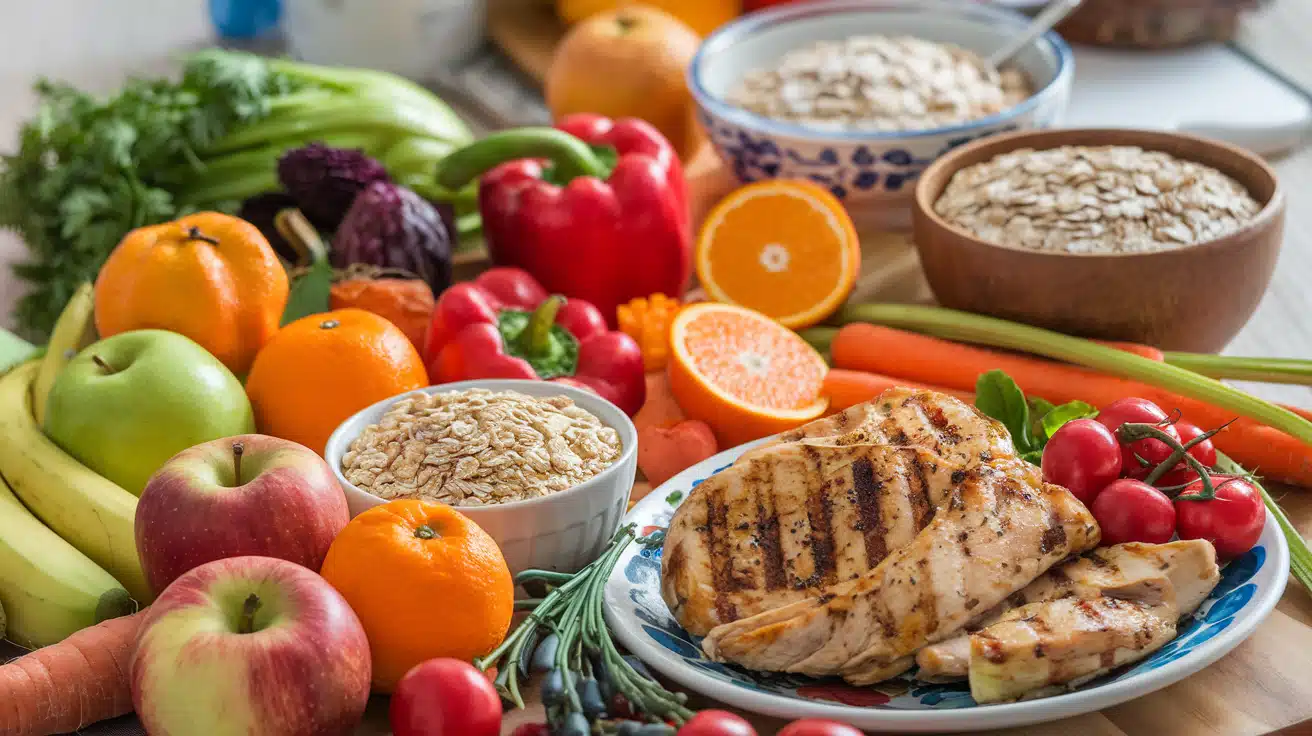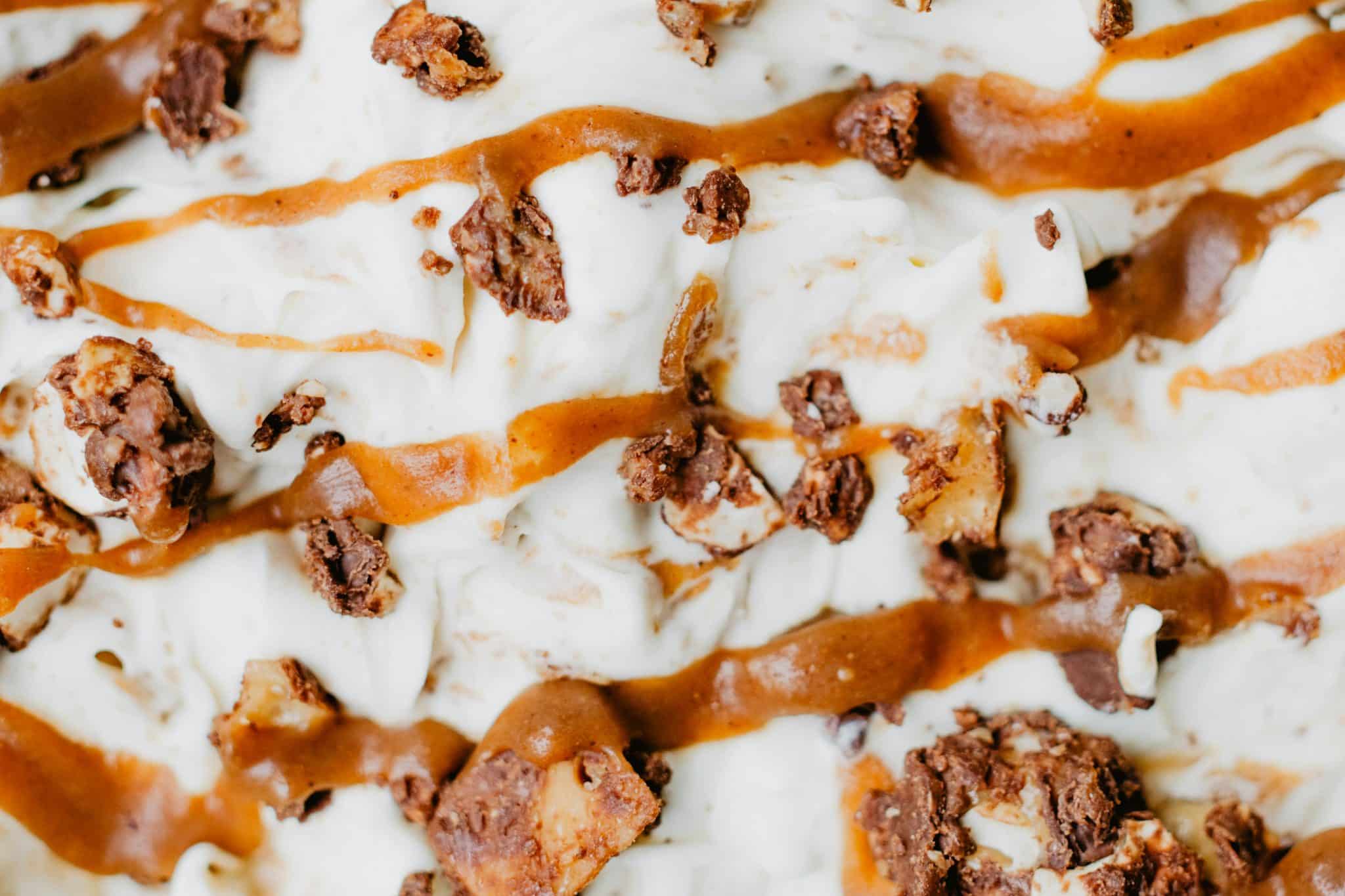Ever wonder why you feel sluggish after eating junk food or energized after a nutritious meal?
The connection between what we eat and how we feel isn’t just in your head, it’s backed by solid science.
Your brain needs proper fuel to function at its best, and the right foods can literally change your mood, reduce anxiety, and boost mental clarity.
The link between nutrition and mental health is stronger than most people realize, with certain nutrients acting like natural antidepressants.
The Science Behind Food and Mood
Your brain consumes about 20% of your daily calories, making it one of your body’s most energy-hungry organs.
When you eat processed foods high in sugar and unhealthy fats, your brain struggles to maintain stable energy levels.
This creates mood swings, brain fog, and increased stress. Research shows that people who follow nutrient-rich diets have significantly lower rates of depression and anxiety.
The Mediterranean diet, packed with whole foods, has been linked to a 30% reduction in depression risk.
Let’s take a look at the foods and nutrients that can enhance our mood and mental well-being.
Brain-Boosting Nutrients for Mental Health
Your brain is incredibly hungry; it burns through about 20% of your daily calories!
However, it’s not just about quantity; specific nutrients act like premium fuel, which can literally improve your mental well-being by providing these nutrients.
1. Omega-3 Fatty Acids: Nature’s Antidepressant
Omega-3 and depression evidence continues to mount in scientific studies. These healthy fats help reduce inflammation in the brain and support the production of neurotransmitters.
Best sources include:
- Salmon and sardines
- Walnuts and flaxseeds
- Chia seeds
- Mackerel
2. Magnesium: The Calming Mineral
Stress depletes your body’s magnesium stores, creating a vicious cycle. Magnesium-rich foods for stress relief help relax your nervous system and improve sleep quality.
Top magnesium sources:
- Dark chocolate (70% cacao or higher)
- Spinach and Swiss chard
- Pumpkin seeds
- Avocados
- Black beans
3. B Vitamins: Energy for Your Brain
B vitamins, particularly B6, B12, and folate, play a crucial role in producing mood-regulating neurotransmitters such as serotonin and dopamine.
Foods rich in B vitamins:
- Eggs and lean meats
- Leafy greens
- Legumes and lentils
- Nutritional yeast
Best Foods for Anxiety and Stress Management
When anxiety strikes, your food choices can either fuel the fire or help calm the storm.
Understanding which foods support a stable mood and which ones trigger anxiety symptoms empowers you to make better dietary decisions throughout the day.
Foods That Fight Anxiety and Boost Your Mood
| Food Category | Best Options | Key Benefits | How Much to Eat |
|---|---|---|---|
| Complex Carbs | Sweet potatoes, oats, quinoa, brown rice | Stabilize blood sugar, boost serotonin | 1-2 servings per meal |
| Gut Health Foods | Greek yogurt, kefir, sauerkraut, kimchi | Supports 90% of serotonin production | 1 serving daily |
| Omega-3 Sources | Salmon, walnuts, chia seeds, flaxseeds | Reduce brain inflammation | 2-3 servings per week |
| Magnesium-Rich | Dark chocolate, spinach, pumpkin seeds | Calm nervous system, improve sleep | 1 handful of seeds daily |
| Antioxidants | Berries, green tea, and colorful vegetables | Combat oxidative stress | 2-3 servings daily |
Foods That Trigger Anxiety and Worsen Mood
| Food Category | Foods to Limit | Why They Harm | Better Alternatives |
|---|---|---|---|
| Refined Sugars | Candy, sodas, pastries, white bread | Cause blood sugar crashes | Fresh fruit, whole-grain bread |
| Processed Foods | Fast food, packaged snacks, frozen meals | Disrupt gut bacteria, lack nutrients | Whole foods, home-cooked meals |
| Excess Caffeine | More than 3 cups of coffee, energy drinks | Overstimulate the nervous system | Green tea, herbal teas |
| Trans Fats | Fried foods, margarine, processed baked goods | Increase brain inflammation | Olive oil, avocados, nuts |
| Excess Alcohol | More than 1-2 drinks daily | Depletes mood-supporting nutrients | Sparkling water with fruit |
Making these strategic food swaps creates a foundation for better anxiety management while avoiding the dietary triggers that can send your stress levels soaring.
Sample Meal Plan for Mental Clarity
Here’s a simple meal plan for mental clarity that incorporates mood-boosting nutrients:
Breakfast
- Overnight oats with berries, walnuts, and ground flaxseed
- Green tea
Lunch
- Salmon salad with mixed greens, avocado, and pumpkin seeds
- Sweet potato
Snack
- Greek yogurt with dark chocolate chips
Dinner
- Lentil curry with spinach
- Brown rice
- Steamed broccoli
Practical Tips for Mood-Supporting Nutrition
Ready to put all this nutrition knowledge into action? Here are simple, realistic strategies that make eating for better mental health feel effortless rather than overwhelming.
- Start Small: Don’t overhaul your entire diet all at once. Add one mood-boosting food to each meal and gradually build from there.
- Stay Hydrated: Even mild dehydration affects concentration and mood. Aim for 8-10 glasses of water daily.
- Time Your Meals: Eating every 3-4 hours keeps blood sugar stable and prevents mood crashes.
- Prepare Ahead: Batch cook mood-supporting meals on weekends. Having healthy options readily available makes it easier to stick to your goals.
Understanding the Gut-Brain Connection for Mental Health

Your digestive system and brain communicate constantly through the vagus nerve. When your gut is healthy, it sends positive signals to your brain. When it’s inflamed from poor food choices, it can trigger anxiety and depression.
Your gut produces 90% of your body’s serotonin, the feel-good hormone that regulates mood. This is why gut health has a direct impact on mental wellness.
Focus on fiber-rich foods that feed beneficial gut bacteria. Beans and legumes are rich sources of both protein and fiber. Artichokes and asparagus contain specific fibers that are loved by good bacteria. Garlic and onions naturally support healthy gut bacteria. Bananas and apples offer gentle fiber without causing inflammation.
By prioritizing these gut-friendly foods, you’re directly supporting your brain’s ability to regulate mood and manage stress naturally.
Conclusion
The connection between nutrition and mental health isn’t just trendy wellness talk; it’s real science that can change how you feel every day.
By focusing on nutrient-dense whole foods, supporting your gut health, and maintaining stable blood sugar levels, you’re giving your brain the tools it needs to regulate its mood naturally.
Small, consistent changes in your diet can lead to significant improvements in your mental well-being over time.
Remember, food is medicine, and every meal is an opportunity to support your mental health.
What’s one mood-boosting food you’re excited to try this week? Share your thoughts or questions about nutrition and mental health in the comments below!







































